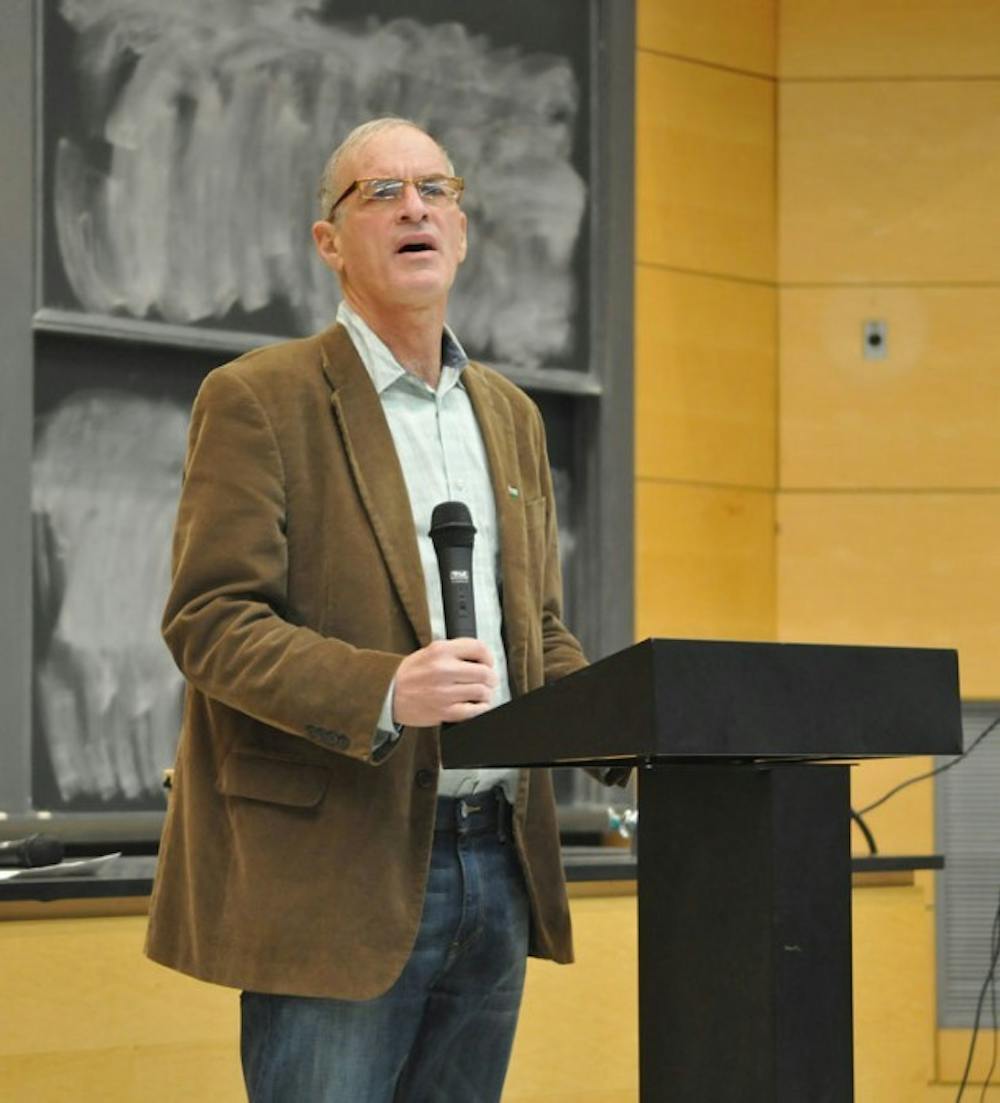Norman Finkelstein , a political scientist, author, and former college professor, spoke to a diverse crowd of students, professors and community members last Wednesday evening on an invitation from UB Students for Justice in Palestine, the Muslim Student Association, and other off-campus organizations. The event took place in room 225 of the Natural Sciences Complex.
Finkelstein's highly critical views on Israeli treatment of Palestine have garnered outrage among Jewish communities across the nation. His controversial stance even got him denied tenure at DePaul University in 2007, after a very public debate with Harvard Law Professor Alan Dershowitz about the Israeli-Palestinian conflict.
His views have brought charges of anti-Semitism, even though he is Jewish himself and his parents were both Holocaust survivors. Some students also worried about being branded as anti-Semites for disagreeing with Israeli policies.
"I'm criticizing the government," said Sikander Khan, president of the Muslim Student Association, a junior computer engineering major, and next year's Undergraduate Student Association treasurer. "I'm not against Israel or Jews."
While Hillel of Buffalo, the Jewish campus ministry at UB, did not make a public statement against Finkelstein, it did offer two alternative speakers, Asaf Romirowsky and Ernest Sternberg, on similar topics. According to Khan, the Muslim SA had received pressure to cancel the talk as well.
"In my opinion, the UB administration is not trying to protect academic freedom, but is intimidated by the Muslim student organization and its affiliated Islamistic institutions," said Michael Anbar, a professor emeritus of physiology and biophysics, in an article on the website Israpundit.
This is not the first time Finkelstein has been in this position. In 2004, he spoke about the same topic at UB amid a similar uproar. Officials at UB allowed him to speak as a protection of free speech, but some dissenters called it hate speech.
Although Finkelstein is a very controversial figure in the public forum, event organizers see him in a different light.
"I don't see him as a controversial figure," Khan said. "I see him as someone who is very knowledgeable of events in the Middle East."
The crowd at Finkelstein's lecture was not nearly as divided. The group of over 200 people mostly applauded him during his over two-hour talk and accepted flyers critical of Israel.
The focus of his talk was on the three-week conflict between Israel and Palestine in 2008-2009 called the Gaza War, which is also the focus of his new book.
This comes only days after former judge Richard Goldstone's op-editorial in The Washington Post about the battle, in which he said that the fact–finding report that he led for the United Nations, titled the Goldstone Report, had incorrect information about war crimes allegedly committed by Israel against Palestinians. The pro-Palestinian Finkelstein said this made him very upset – he stayed up for days over it.
President Obama's agreement with this editorial angered him even more, pushing the very left-leaning professor to say that he would prefer the Bush administration to the Obama administration because Obama is "for sale."
Before ending and signing copies of this book, he was asked about what he thought an appropriate solution to the conflict between Israel and Palestine would look like. He posed an unconventional response.
"It doesn't matter what I think," Finkelstein said. "What matters is what kind of settlement can reach the most people."
Email: features@ubspectrum.com





